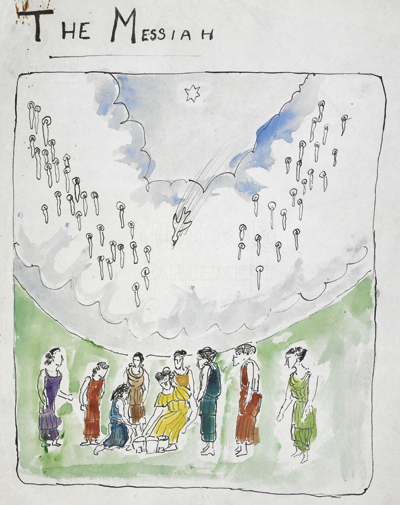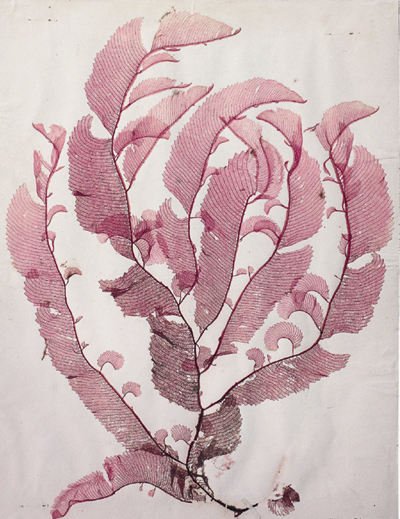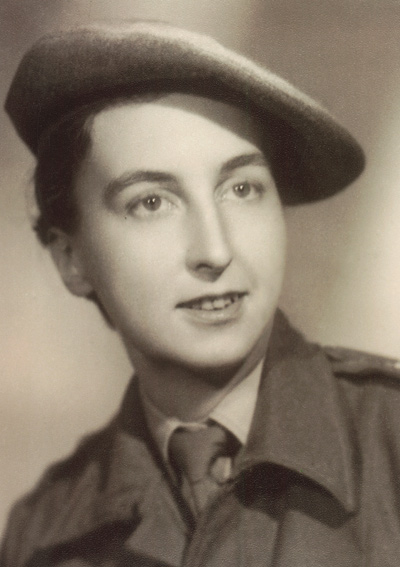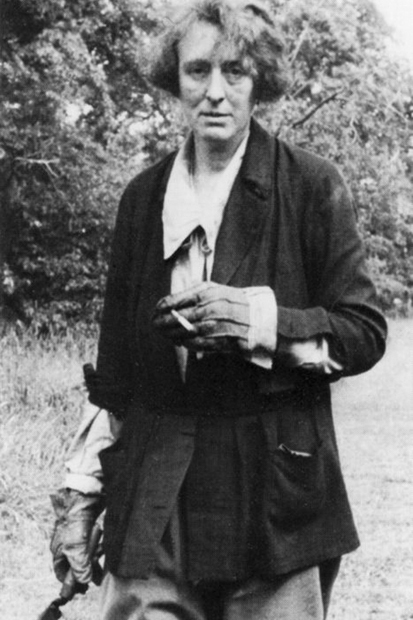The Charleston Bulletin was a family newspaper produced between 1923 and 1927 by the teenaged Quentin Bell and his elder brother Julian — who soon dropped out, leading Quentin to recruit his aunt Virginia Woolf. At that time enjoying her most prolific period as a novelist, she collaborated with him on special issues which they called Supplements, for circulation at Christmas among the family and friends whose foibles and mishaps are chronicled in its pages. Professor David Bradshaw in his preface suggests that ‘it may not be ridiculous’ to link the ‘skittish abandon’ of the Supplements with the sense of liberation that Woolf felt in having found her fictional voice and critical recognition.
Quentin did the funny drawings, and mostly Virginia dictated the words to him, though sometimes she wrote them in her own handwriting round the edges and underneath. There is an ample explanatory introduction by Claudia Olk, with dropped-in family snaps. The Supplements are, according to Olk, ‘very likely the last remaining of Virginia Woolf’s unpublished works’. The bottom of the golden barrel has at last been reached.
This book reproduces the majority of the pages of the Supplements in colour, with transcripts of all Woolf’s texts, in which young Quentin’s bad spelling, grammar and punctuation, and his aunt’s occasional eccentricities of the same nature, are reproduced faithfully. The volume comes with annotations and full scholarly apparatus, which you might think was designed to echo the mock-gravitas of the content, were it not that Professor Olk holds the chair of English and Comparative Literature at the Freie Universitat Berlin. The dissonance between the daffy little captions and stories, and the academic way in which they are contextualised, is rather nice, like finding feathers in a log-pile.
The characters in the sketches are the inhabitants of Charleston farmhouse in Sussex — Vanessa and Clive Bell, their children, and Vanessa’s lover Duncan Grant — plus Virginia and Leonard Woolf, and their Bloomsbury neighbours and their many regular visitors, all of whom will be familiar to aficionados. They include servants, motor cars and pet animals, all reflecting, as Bradshaw puts it, ‘the skimble-skamble milieu of Charleston’.
The Supplements are themed, and designed to tease the extensive dramatis personae, as in ‘Eminent Charlestonians’. But the very first one is ‘Scenes from the Life of Mrs Bell’, in which Virginia’s sister Vanessa — Nessa — is caricatured in all her vagueness, originality and general irresistibility:
This is the tenth pair of specs Ive’ lost this week said Nessa I really believe the daws steal them & line their nests. Six pairs were found later firmly embedded in her hair.
The Supplements are ‘pervaded by the spell of Vanessa Bell’s presence’, as Professor Olk writes.
‘The Dunciad’ consists of ludicrous episodes from the life of Clive Bell, and since family jokes are sometimes hard for outsiders to get, it would require very special knowledge to ascertain if the fantasies have any basis in fact — not that it matters a toss. When Vanessa was preoccupied with her first baby, Virginia and Clive, both feeling jealous and excluded, had engaged in a flirtation which probably didn’t go very far, but on the evidence here it seems to have left her with a prickly, provocative sort of fascination with him.
Clive Bell is featured again in, and as, ‘The Messiah’, which chronicles his arrival at Cambridge, his meeting with Vanessa and Virginia, his marriage to Vanessa, and a dinner party in Gordon Square which included the poet Yeats who
was not observed to make a single remark, but grinding his teeth, & stamping his feet produced a sound which was expressive of considerable mental equipment in a congealed condition.
This cheery publication will be appreciated by devotees of Virginia Woolf and may even jump-start an interest in those who have hitherto resisted the Bloomsbury cult.
Got something to add? Join the discussion and comment below.
Get 10 issues for just $10
Subscribe to The Spectator Australia today for the next 10 magazine issues, plus full online access, for just $10.
Victoria Glendinning’s books include Vita: The Life of Vita Sackville-West and Leonard Woolf.
You might disagree with half of it, but you’ll enjoy reading all of it. Try your first month for free, then just $2 a week for the remainder of your first year.












Comments
Don't miss out
Join the conversation with other Spectator Australia readers. Subscribe to leave a comment.
SUBSCRIBEAlready a subscriber? Log in